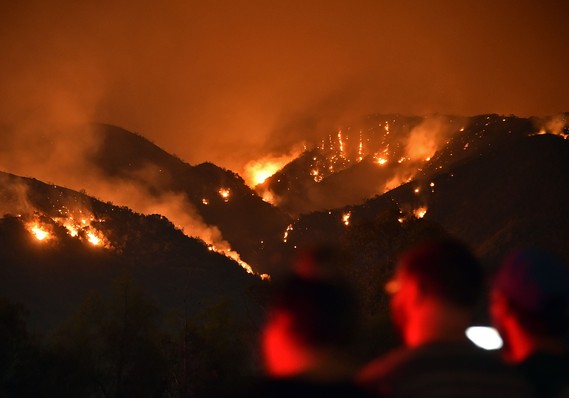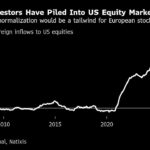 ROBYN BECK/AFP/Getty Images
ROBYN BECK/AFP/Getty Images
It’s only a matter of time before the Federal Reserve hires a chief climatologist.
After all, despite Wall Street humor about weather being a poor excuse for weak economic data, the pace of climate change is now clearly rapid enough to begin affecting economic forecasts. How long until forecasting gross domestic product depends crucially, fundamentally, on expected weather patterns?
Officials are already thinking about these issues. Several government and private institutions have tried to model the effects of climate change on economic growth.
“Many central banks already include climate change in their assessments of future economic and financial risks when setting monetary and financial supervisory policy,” writes Glenn Rudebusch, senior policy adviser and executive vice president at the San Francisco Fed.
Relevant for monetary policy
A new report from the San Francisco Fed lays out several scenarios by which climate change and its effects could damage the financial system, potentially devolving into a crisis.
“Climate change is becoming increasingly relevant for monetary policy,” says Rudebusch.
“For example, climate-related financial risks could affect the economy through elevated credit spreads, greater precautionary saving, and, in the extreme, a financial crisis,” he said.
“There could also be direct effects in the form of larger and more frequent macroeconomic shocks associated with the infrastructure damage, agricultural losses, and commodity price spikes caused by the droughts, floods, and hurricanes amplified by climate change,” Rudebusch says.
After all, financial crises are often the result of large, unexpected losses in some corner of the capital markets that banks and other major financial institutions end up having greater exposure to than previously estimated (or at least officially reported).
Also read: How one investor avoided the PG&E bankruptcy
Imagine the ripple effects that catastrophic climate events of a highly unpredictable nature could have on financial portfolios. Say, for instance, that faster-than-expected changes in climate force a more rapid reduction in fossil-fuel energy sources? The big bank and private-equity interests funding such investments could face steep losses that might then percolate through other parts of the financial system.
Investors demand action
It’s not just Fed researchers paying attention to the weather. Big money managers are also pretty frightened of the potential consequences. Late last year, a group of 415 investors with $32 trillion in assets-under-management issued a joint call to action on climate.
Its warning was rather dire:
“Without greater action, Schroders, which is a signatory to the statement, point to long-run temperature rises of around 4°C, with $23 trillion of associated global economic losses over the next 80 years. This is permanent economic damage three or four times the scale of the impacts of the 2008 Global Financial Crisis, while continuing to escalate.”
Insurance companies have already warned global property prices could slump, potentially tripling losses on those investments over the next 30 years.
Also read: Insurance claims from November’s California wildfires top $11.4 billion
Climate change also does not recognize national boundaries, which means problems overseas can spill over into other nations even more readily than financial contagion.
Spending on infrastructure aimed at adapting to a changing climate, such as seawalls, strengthened transportation systems and weather-resistent construction, “divert resources from productive capital accumulation.”
In the same vein, the investments need to reduce carbon emissions resulting in warming climates are likely to affect trends in credit markets.
Rudebusch pushes back against the notion that “the economic and financial concerns surrounding climate change [have] either too short or too long a time horizon to affect monetary policy decisions.”
Instead, he says, “climate change could cause such shocks to grow in size and frequency and their disruptive effects could become more persistent and harder to ignore.”
A new report from the Congressional Budget Office estimates annual losses from damage linked to hurricanes and flooding at $54 billion under current conditions (which are changing rapidly).
Previous research from the San Francisco Fed found the disturbances from climate change would shave about a third off U.S. economic growth rates by the end of this century.
Green bonds
Rudebusch says the Fed is not in a position to use monetary policy to help the economy transition to lower carbon emissions. However, he does note that some central banks which, unlike the Fed, can purchase corporate bonds, could focus their purchases on low-carbon energy sectors.
“Such ‘green’ quantitative easing is an option for some central banks but not for the Fed, which by law can only purchase government or government-agency debt,” Rudebusch said.
But what if the Treasury issued climate bonds aimed at generating such a framework? The idea seems far-fetched now, but perhaps may not appear so if the climate effects accelerate quickly enough to spook officials in Washington.





